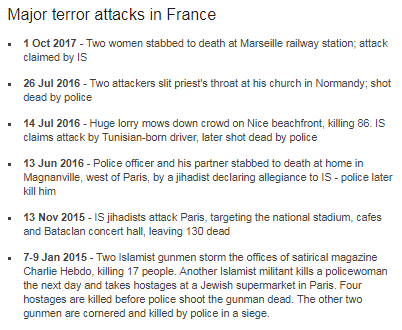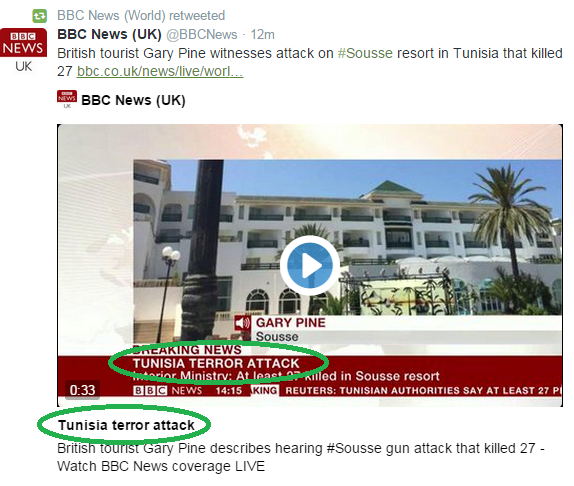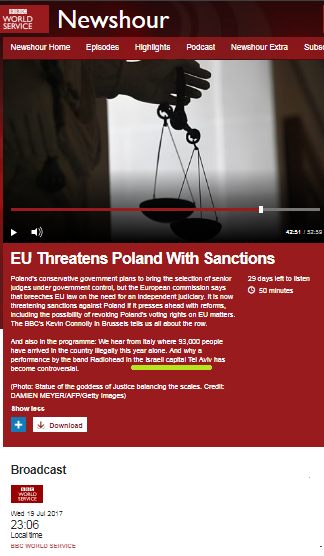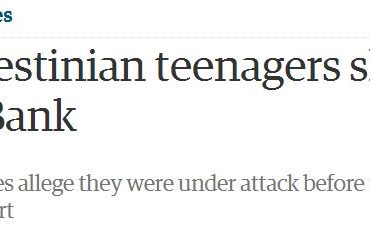On the morning of November 7th seventeen year-old Shalom Ba’adani, who was seriously injured in the terror attack in Jerusalem two days previously, died of his injuries.
A report appearing on the BBC News website on the same date under the title “Jerusalem: Victim of Palestinian van attack dies” notably did not mention the victim’s name until its fourth version but interestingly – given that Palestinian casualties of similar ages and even older are frequently referred to in BBC reports as ‘teenagers‘ or ‘boys‘ – described him as “the man”.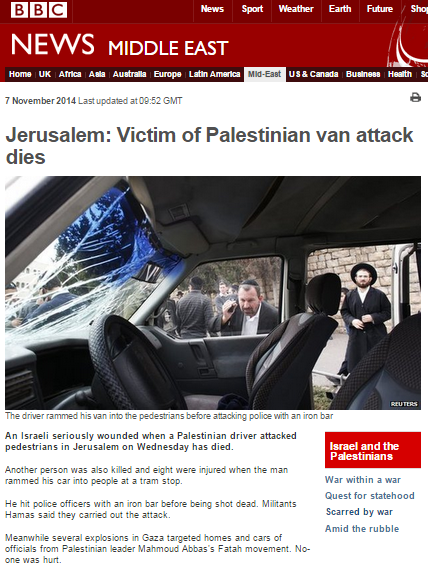
The sections of the report relating to its title’s subject matter read as follows:
“An Israeli seriously wounded when a Palestinian driver attacked pedestrians in Jerusalem on Wednesday has died.
Another person was also killed and eight were injured when the man rammed his car into people at a tram stop.
He hit police officers with an iron bar before being shot dead. Militants Hamas said they carried out the attack.”
In fact, thirteen people were injured in the attack rather than eight as stated by the BBC. The report continues:
“The man declared dead on Friday after the Jerusalem attack was a 17-year-old student at a Jewish seminary, Israeli army radio reported.
The driver of the van, Ibrahim al-Akari, was from Shuafat refugee camp in the east of the city, police said.
His Facebook page states that he is a member of Hamas, and the Twitter account for the group’s armed wing, the al-Qassam Brigades, described him as a member and a martyr.
Hamas said it had carried out the Jerusalem attack in revenge for Israel’s actions around the al-Aqsa mosque, part of a holy compound.
A 38-year-old Israeli Druze border policeman, Jaddan Assad, was killed in the incident – the city’s second attack by a Palestinian with a vehicle in a week.
A baby girl and an Ecuadorean woman were killed in the previous attack, carried out by a member of the Islamic Jihad militant group.”
In fact the November 5th attack was the second using the same method in two weeks – not “in a week” as stated by the BBC – with the previous attack having taken place on October 22nd.
As we see the perpetrators of both of those attacks are described as belonging to “militant” groups – Hamas and Palestinian Islamic Jihad – and readers are not informed of their designation as terrorist organisations.
Hamas is of course defined as a terrorist organization by Israel, the United States, the European Union, Canada and Japan – as the BBC’s own profile of Hamas clearly states. In addition, Jordan and Egypt have banned Hamas and Australia designates Hamas’ Izz al Din Al Qassam Brigades as a terrorist organization, as do New Zealand and the United Kingdom. The Palestinian Islamic Jihad is designated as a terror organization by the United States, the European Union, the United Kingdom, Japan, Canada, Australia, New Zealand and Israel.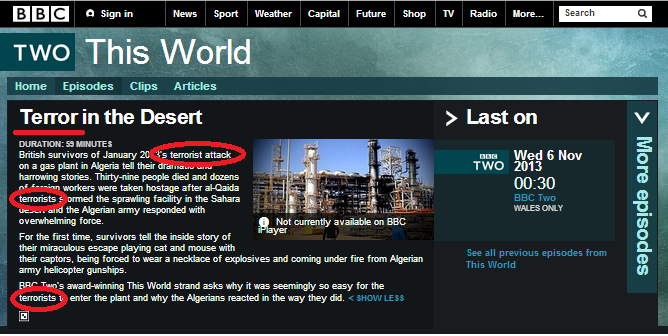
Both the perpetrators of these attacks were affiliated to known terrorist organisations – a fact which many people would consider reason enough to term them terrorists – and carried out acts of violence which deliberately targeted civilians. The BBC, however, continues to refrain from using the word terror and its derivatives to describe them, their acts and the organisations to which they belonged.
As readers are no doubt aware, the BBC’s guidance on “Language when Reporting Terrorism” states:
“The word “terrorist” itself can be a barrier rather than an aid to understanding. We should convey to our audience the full consequences of the act by describing what happened. We should use words which specifically describe the perpetrator such as “bomber”, “attacker”, “gunman”, “kidnapper”, “insurgent”, and “militant”.”
It appears that the word “driver” can now be added to the BBC’s list.
As readers probably also know, the BBC’s rationale for avoidance of the use of the words ‘terror’ and ‘terrorist’ is supposedly rooted in the corporation’s aspiration to avoid “value judgements” – bizarrely even when a vehicle is deliberately ploughed into a pram carrying a three month-old baby or a bicycle ridden by a seventeen year-old youth.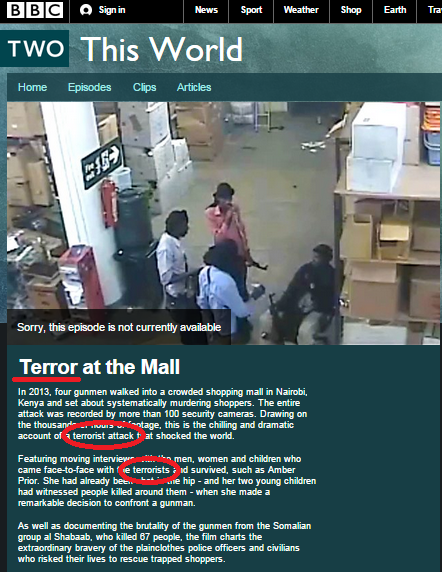
That rationale might – debatably – be less problematic were it at least applied uniformly by the BBC. However, as we have noted here on numerous occasions in the past – it is not. Moreover, we have learned in the past couple of weeks that whilst Israelis murdered in premeditated terror attacks on a public transport system are not described by the BBC as being victims of terrorism, even a potential threat to British travellers is reported using the word terrorists.
“British travellers have been warned they could be targeted by terrorists seeking revenge for UK air strikes against Islamic State (IS) militants.”
The double standards apparent in the BBC’s reporting of terrorism continue to shine a spotlight on the value judgements it does choose to make.
Related Articles:
Mapping the BBC’s inconsistent use of the word ‘terror’

